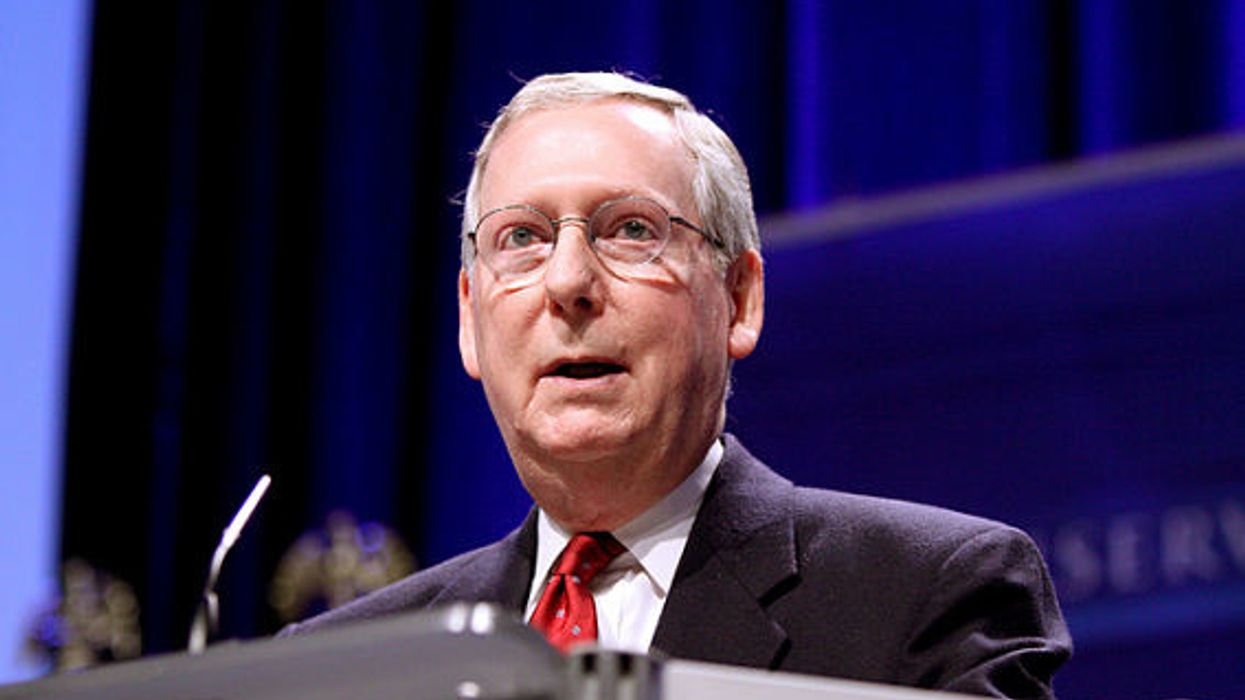Republicans Rage Over Budget, Bibi, And Border, But Can't Dent Biden In Polls
Congressional Republicans are once again outraged that President Joe Biden has not allowed them to run his calendar. This time they are furious that he has not yet submitted a formal budget to Congress.
Biden, who was inaugurated on Jan. 20, has been president for just 76 days. He has spent much of that time cleaning up the messes left by Donald Trump: the ongoing deadly coronavirus pandemic, the economic crisis the pandemic has caused, and systemic problems of racism and violence made even more visible in the past four years.
Still, Republicans on the House Budget Committee used their official Twitter account on Tuesday to attack Biden for not yet releasing a budget proposal.
"President Biden's lack of transparency is historic as he continues to fail to submit any budget plan or outline to Congress," they charged. "When he does it will be the latest a President has submitted an initial budget outline to Congress in the modern budget era. @POTUS where is your budget?"
Biden's acting budget director has been on the job for less than two weeks. Rather than cooperate with Biden's team to ensure a smooth transition, Trump's team at the Office of Management and Budget pretended that they were going to write the 2022 budget, even after Biden's decisive election victory.
Congressional Republicans are demanding that Biden prioritize filing a budget document as if the president is obligated to do exactly what they tweet he should do.
Over the past two months, they have whined repeatedly when Biden didn't drop everything to meet assorted other GOP demands.
For weeks, they complained that since his inauguration, President Biden had not had a phone conversation with embattled and indicted Israeli Prime Minister Benjamin Netanyahu — even though the two had spoken during the transition and Netanyahu's ambassador to the United States had made clear he was in no rush, saying, "The prime minister is not worried about the timing of the conversation."
"What is @POTUS avoiding?" asked Texas Rep. Ronny Jackson on Feb. 11. "I urge President Biden to ignore the radical left in his party and make a strong show of support for our partnership with Israel by calling @IsraeliPM Netanyahu."
"From Xi and Putin to Mario Kart, President Biden has found plenty of time for many activities since being sworn in," groused Rep. Lee Zeldin of New York on Feb. 16. "It's past time to pick up the phone and call America's loyal friend, Israeli Prime Minister Benjamin Netanyahu."
"Over the years, the U.S. has strengthened our relationship with Israel, the only democracy in the Middle East, due to our shared interests and values," tweeted Tennessee Rep. David Kustoff on Feb. 17. "Yet, after 28 days, @JoeBiden has still not picked up the phone to call Israeli Prime Minister Netanyahu."
Biden and Netanyahu spoke on Feb. 17.
Next, Republicans, who had defended Trump as he attacked and stonewalled the press for four years and set records for the length of time that passed between news conferences, went after Biden for not holding a formal news conference. Biden had frequently answered reporters' questions in informal settings.
"Why does Joe Biden, the least transparent president in history, need to announce his press conference over a week in advance?" asked Colorado Rep. Lauren Boebert on March 17 after the White House announced the date.
"What kind of President takes 64 full days to finally have a press conference? NOT a mentally competent one I'll tell you that!" tweeted Jackson on March 18.
"If Trump had gone 60+ days without taking questions and then held a nonsensical press conference like Biden did yesterday, the Dems would be shouting to invoke the 25th Amendment," tweeted Texas Rep. Brian Babin on March 26, the day after Biden spent an hour answering questions from the White House press corps about immigration, Trump, and Biden's plans for 2024.
More recently, congressional Republicans have demanded Biden and Vice President Kamala Harris visit the U.S.-Mexico border to witness what they call a "crisis."
"It's time @JoeBiden takes responsibility for the crisis he has created at our border and makes a visit to see it for himself," Sen. Rick Scott of Florida tweeted on March 23.
"Our border is devolving into more chaos as the days go by," claimed Boebert on March 24. "Joe Biden has yet to announce plans to visit and Kamala Harris cackled at the thought."
"Move the southern border to Delaware and Joe Biden might visit it," sniped Texas Rep. Lance Gooden on March 29.
Biden said in response to questions on whether he'd visit the border, "At some point I will, yes. ... I know what's going on in those facilities."
Despite the GOP outrage, voters seem unperturbed.
According to FiveThirtyEight polling averages, Biden continues to enjoy the positive job approval ratings he's seen since taking office. Those averages put current approval of the job he's doing at 53.6% and disapproval at just 39.6%.
This is a significant reversal from his predecessor. After his first week in the White House, Trump never again reached his highest average approval rating of 46% and spent most of his four years in office with a majority of those polled disapproving of his job performance.
Published with permission of The American Independent Foundation.




